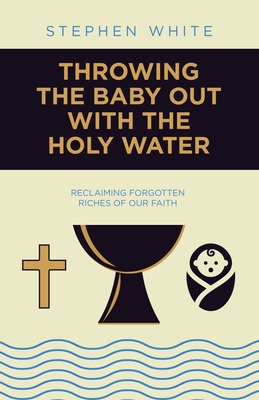This book is intended for those who feel something is missing. For those who cherish their Reformation heritage but experience the lack of a rooted faith. For those who crave spiritual depth yet have been cautioned against looking too far back. For those who rightly suspect that the ancient Church holds treasures we've overlooked, and who wish to recover them without compromising the gospel in the process. I am one of those people. I am Protestant. I am grateful for the clarity, conviction, and gospel urgency that runs through the best of the Reformation tradition. However, I have also learned that the Reformation was not a blank slate. It was a return - a return to something already present in the early Church, long before the medieval corruptions that the Reformers rightly challenged. That Early Church is ours too. The wisdom of the desert fathers is ours. The profound thinking of Catholic theologians, when in step with Scripture, is ours. The reverence of liturgical worship is ours. Mary's example of discipleship is ours. The practice of confession is ours. These are not "Catholic things" that we're borrowing. They are Christian things we left behind. The goal of this book is not to argue for reunion with Rome. It's not to flatten doctrinal differences or pretend that the Reformation doesn't matter. It does matter - deeply. However, recovering lost wisdom does not betray the gospel; instead, it deepens our experience of it. It anchors us more fully in the historical Church and strengthens our present discipleship. We live in an age of spiritual shallowness. Attention spans are short. Formation is thin. Many of our churches have become expressions of the broader culture - anxious, fragmented, performative, over-programmed, and emotionally underdeveloped. Our theological systems are sound, but our souls are brittle. What we need isn't novelty; it's rootedness. And there is no root system richer than the one the Spirit has cultivated through two thousand years of global, historic Christianity. That root system includes more than just Calvin and Luther; it encompasses Irenaeus, Benedict, Teresa of Ávila, and yes, even Aquinas. It comprises the monastics and the mystics, along with rhythms and practices that were born in the desert and tested by fire. We don't honor our Protestant ancestors by staying shallow. We honor them by going deeper - by seeking the full maturity that the Church was always meant to grow into. If we are to become a people of resilience











